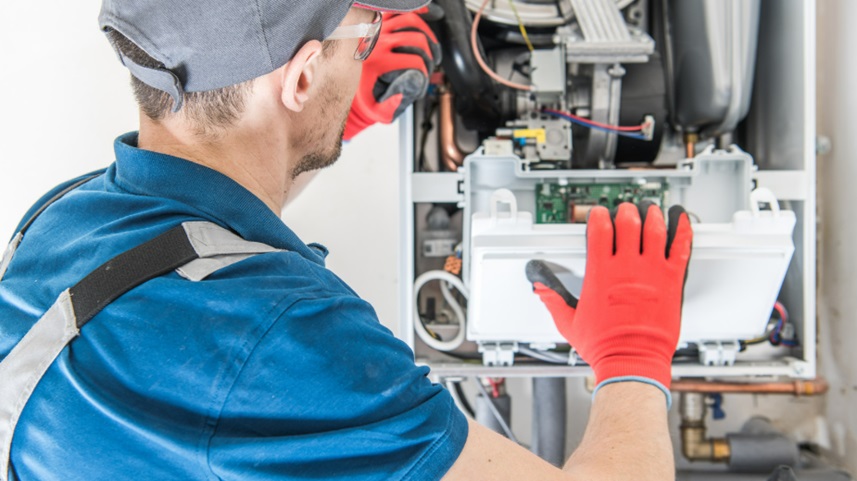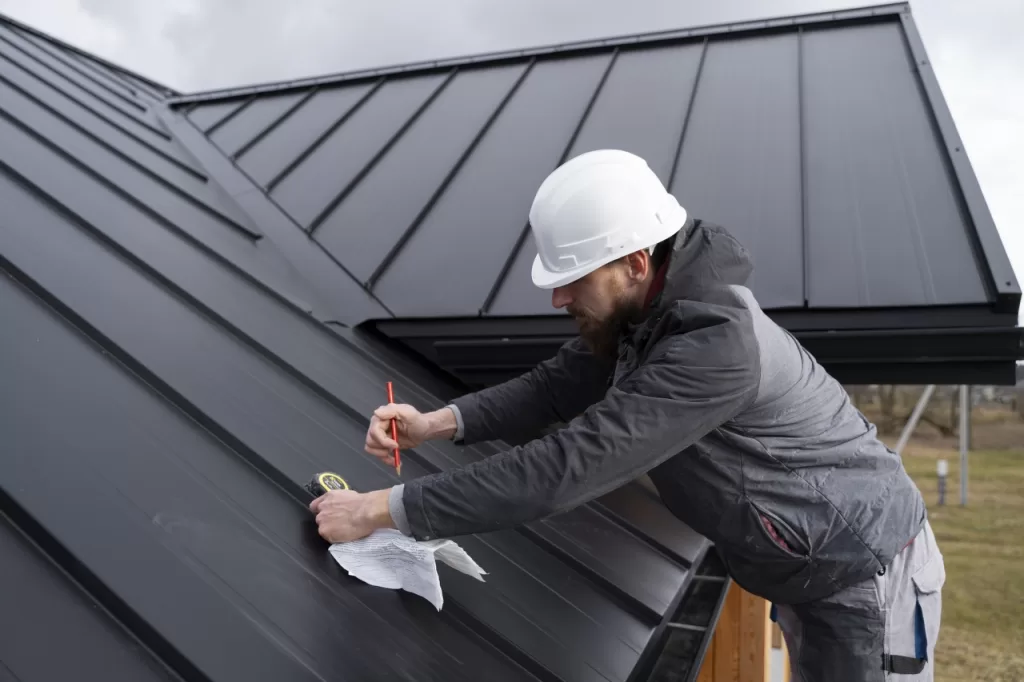Heat Pump Hot Water Cylinder – Revolutionizing Home Heating


Heat pump hot water cylinders are rapidly gaining popularity as an energy-efficient and environmentally friendly solution for home heating. These systems leverage advanced technology to provide hot water for domestic use while significantly reducing energy consumption and carbon emissions. In this article, we’ll explore the mechanics of heat pump hot water cylinders, their benefits, installation considerations, and maintenance tips, providing a comprehensive overview for homeowners considering this innovative heating solution.
Understanding Heat Pump Hot Water Cylinders
Heat pump hot water cylinders operate on the same principle as refrigerators but in reverse. Instead of removing heat from an enclosed space and releasing it outside, they extract heat from the air, ground, or water and use it to heat water stored in a cylinder. Here’s a step-by-step breakdown of the process:
Heat Extraction: The heat pump absorbs heat from an external source, such as the air or ground. This heat is then transferred to a refrigerant fluid circulating within the system.
Compression: The refrigerant is compressed, raising its temperature significantly.
Heat Exchange: The hot refrigerant passes through a heat exchanger, where it transfers its heat to the water in the cylinder.
Expansion: The refrigerant is expanded, lowering its temperature, and the cycle repeats.
Types of Heat Pump Systems
There are three primary types of heat pump systems used in hot water cylinders:
Air Source Heat Pumps (ASHP): These systems extract heat from the ambient air, even at low temperatures. They are the most common and cost-effective type for residential use.
Ground Source Heat Pumps (GSHP): Also known as geothermal heat pumps, these systems draw heat from the ground. They are highly efficient but require more extensive installation work.
Water Source Heat Pumps (WSHP): These systems extract heat from bodies of water, such as lakes or wells. They are less common but can be highly effective in suitable locations.
Benefits of Heat Pump Hot Water Cylinders
Energy Efficiency
Heat pump hot water cylinders are significantly more energy-efficient than traditional electric or gas water heaters. They can provide up to four units of heat for every unit of electricity consumed, resulting in substantial energy savings. This efficiency translates into lower utility bills for homeowners.
Environmental Impact
By utilizing renewable heat sources, heat pump systems reduce the reliance on fossil fuels and lower greenhouse gas emissions. This makes them an environmentally friendly option that aligns with global efforts to combat climate change.
Cost Savings
While the initial investment in a heat pump hot water cylinder can be higher than conventional systems, the long-term savings on energy bills often offset this cost. Additionally, many governments offer incentives and rebates to encourage the adoption of energy-efficient technologies, further reducing the financial burden.
Consistent Heating
Heat pump hot water cylinders provide a reliable and consistent supply of hot water. They are designed to operate efficiently in a wide range of temperatures, ensuring homeowners have access to hot water year-round.
Versatility
Heat pump systems can be integrated with other renewable energy sources, such as solar panels, to enhance their efficiency and sustainability. This flexibility makes them a versatile choice for modern, eco-conscious homes.
Installation Considerations
Site Assessment
Before installing a heat pump hot water cylinder, it’s essential to conduct a thorough site assessment. This involves evaluating the available space, determining the most suitable heat source, and assessing the building’s insulation and existing heating infrastructure. Professional installers can provide valuable insights and recommendations during this phase.
Space Requirements
Heat pump systems, particularly ground source and water source variants, may require significant space for installation. Air source heat pumps, on the other hand, are more compact and can be installed in a variety of locations, including outdoors. Homeowners should ensure they have adequate space to accommodate the chosen system.
Noise Levels
While modern heat pump systems are designed to operate quietly, it’s essential to consider noise levels, especially for air source heat pumps installed near living areas. Ensuring the system is installed in a suitable location can minimize any potential noise disturbances.
Regulatory Compliance
It’s crucial to comply with local building codes and regulations when installing a heat pump hot water cylinder. This may involve obtaining permits, adhering to specific installation guidelines, and ensuring the system meets safety and efficiency standards.
Professional Installation
Given the complexity of heat pump systems, professional installation is highly recommended. Certified installers have the expertise to ensure the system is set up correctly and operates efficiently. They can also provide valuable advice on system maintenance and troubleshooting.
Maintenance Tips – Regular Inspections
Routine inspections are essential to ensure the heat pump hot water cylinder operates efficiently. Homeowners should schedule annual maintenance checks with a qualified technician to inspect the system, clean components, and identify any potential issues.
Cleaning and Servicing
Heat pumps and their associated components, such as filters and coils, should be cleaned regularly to prevent dust and debris buildup. This helps maintain the system’s efficiency and prolong its lifespan. Technicians can perform more thorough servicing, such as refrigerant level checks and system diagnostics, during maintenance visits.
Monitoring Performance
Homeowners should monitor their heat pump system’s performance, keeping an eye on factors such as water temperature, energy consumption, and any unusual noises. Early detection of issues can prevent more significant problems and costly repairs down the line.
Insulating Pipes
Proper insulation of hot water pipes can minimize heat loss and improve the system’s overall efficiency. This is particularly important in colder climates where heat loss can be more pronounced.
Updating Software
Some modern heat pump systems come with smart controls and software that optimize performance. Ensuring the system’s software is up-to-date can enhance its efficiency and provide additional features, such as remote monitoring and control.
Comparing Heat Pump Hot Water Cylinders to Traditional Systems
Energy Consumption
Traditional electric and gas water heaters consume significantly more energy compared to heat pump systems. Electric heaters typically have an efficiency rating of around 90-95%, while gas heaters range from 60-80%. In contrast, heat pump systems can achieve efficiency ratings of 300-400%, making them a far more energy-efficient option.
Environmental Impact
Traditional water heaters rely on fossil fuels, contributing to greenhouse gas emissions and environmental degradation. Heat pump systems, on the other hand, utilize renewable heat sources and produce fewer emissions. This makes them a greener choice for environmentally conscious homeowners.
Operating Costs
While the upfront cost of heat pump hot water cylinders can be higher, their lower operating costs often result in significant savings over time. The reduced energy consumption translates into lower monthly utility bills, providing a return on investment within a few years.
Lifespan and Reliability
Heat pump systems generally have a longer lifespan compared to traditional water heaters. With proper maintenance, they can last 15-20 years or more. Additionally, they tend to be more reliable, with fewer breakdowns and repair needs.
Heating Consistency
Heat pump systems provide more consistent and reliable heating compared to traditional systems. They are designed to operate efficiently in a wide range of temperatures, ensuring a steady supply of hot water even in colder climates.
Conclusion
Heat pump hot water cylinders represent a significant advancement in home heating technology. Their energy efficiency, environmental benefits, and cost savings make them an attractive option for homeowners looking to reduce their carbon footprint and lower their utility bills. While the initial investment may be higher, the long-term benefits and potential government incentives make heat pump systems a wise choice for modern homes.

Hot Water Solutions
Address: 3d Tait Place, Rosedale, Auckland 0632, New Zealand
Phone: 0800497658
Email: info@hotwatersolutions.nz
Website: https://hotwatersolutions.nz/
Location: https://maps.app.goo.gl/1PErGDvtptttvYQY6
Follow us: https://www.instagram.com/pete_hotwatersolutions/




